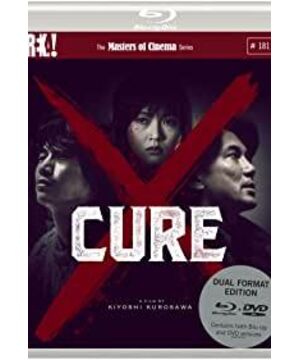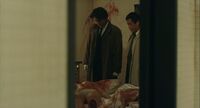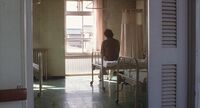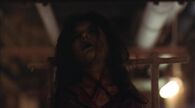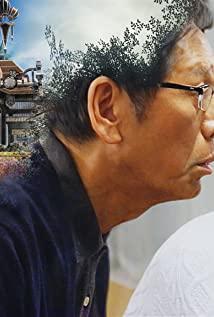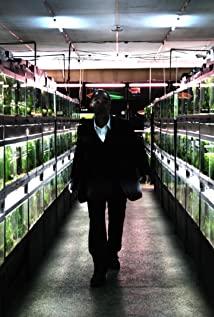I got into filmmaking when I was a student, and I shot amateur films with a super 8mm camera. This was typical in Japanese filmmaking at the time, around 1980. It's quite difficult to get into commercial filmmaking. In the past, movie studios would hire young newcomers, but they stopped doing this entirely in the mid-70s. There is little way for young people to get into commercial filmmaking.
For me, it's a coincidence. I know some senior directors because I work as an assistant director with them. I met Hanaki Takahashi, who made a lot of pink movies. He said I could start my commercial film career as long as I was willing to make pink films. I knew almost nothing about pink movies back then. I said I would do it, and I made my debut. At the time, it was common for commercial directors to make their debut with a pink movie. There are a lot of directors in my generation who came from pink movies. That's my maiden work.
While I did Pink Film and other similar projects, I couldn't get off to a commercial film right away. I went to film a TV series or something, and I wasn't in a hurry. But there are those who want to make this or that movie, and have been dreaming of my own movie, hoping to make it happen one day. I'm not too impatient, I've been doing film-related work. I don't have a lot of options, and I figured it would be nice if I could keep doing small jobs like this.
Then I got an offer to direct a videotape film. Videotape films are similar in content to commercial films, but are not shown in theaters, they are only available at rental video stores. People who work in the film industry don't think they are serious movies. I started working in the videotape industry because all I could get were those jobs, at least film-related jobs.
After making several films, I got to know the actor Sho Aikawa, which was very important to me. I think it's important enough to determine the rest of my career. He is the king of videotape movies, and gangster movies featuring him are very popular. To be honest, even though I got the job in the first place, I was worried about whether I would be able to do it well. Until then, videotape films were either comedies or whatever, not gangster films. From all perspectives, if Aikawa Sho is the protagonist, it must be a gangster movie. To be honest, I like gangster movies and have seen a lot of Toei's works. But I have no confidence and no expectations about my ability to make one. I love watching those movies, but I have no interest in the gangster itself. Sho Aikawa looks almost like a real gangster in the movie, I don't know what I have in common with Sho Aikawa. I think we may have nothing in common. He's a connoisseur of gangster movies, and I'm a layman.
When I really didn't know what to do, I met him with trepidation and started working with him. When I met him, I realized that he was the complete opposite of his on-screen character, and I found him to be a very funny, human, lively and witty guy. He's working on a gangster movie, but he says he also wants to try other different roles, and he's willing to do anything for that. 'We're going to get funding for whatever we want to do,' he said, because the videotape he's in is guaranteed to have a wide distribution. It was Aikawa who encouraged me to do whatever I wanted with him
Since then, I have made ten films with Aikawa as the main character. We tried all kinds of genres, most of them weren't gangster movies, we did a lot, including comedy. One of them was almost like a horror movie, and we did a human movie as well. We made various videotapes featuring Aikawa, but their titles implied a gangster theme. I was allowed to challenge myself in various ways, and Aikawa was reborn, and there was no role he couldn't play.
From my experience working with him, I'm now confident enough to say that if you try, you'll find something exciting and interesting, even though at first you might think it's not for you, or you do not like to do. If you meet an actor and talk to them, you will find all kinds of possibilities in them. This experience has also confirmed to me that I want to do something and they are willing to share it. From the experience of making video films with Aikawa, I began to feel that I should try everything, and I also felt that Japanese films have more possibilities. With this confidence, I think it is possible to change myself significantly.
"X Seiji" didn't have a dramatic start, and it was made while filming a videotape film with Aikawa. This is not a videotape film, but is intended to be shown in theaters. The story itself, like I said earlier, is something I dreamed of doing a long time ago, when there weren't many job opportunities available to me. I just shot it, the circumstances allowed me to do so. After a few videotaped films, I gained a reputation among producers, and while I was pretty much freewheeling, I never went too far. They don't have to worry about me going over budget or that I'll get into a fight with the cast. I think I was allowed to shoot because the producers felt I was unique and not that dangerous. A producer offered to work on one of my own projects. I'm happy, but I never thought that X Sange would be such a turning point for me.
When I made X Sacred Rule, Japanese horror films hadn't established themselves as a genre, they weren't recognized by the public. It never occurred to me that I would be one of the leading characters in Japanese horror films. I think my films Hell Security and Sweet Home would definitely be considered horror films. But I wanted to do something broader, not exactly an entertainment film, but a film that could exist on the fringes of the contemporary Japanese genre. Videotape was an example, but I wanted to try something different, I wanted to try genre films, so I did Sweet Home and Hell Security. After that, though, I didn't get a chance to make a movie like this
Since the early 1990s, my senior writers and directors such as Horo Tsuruta, Chiaki Koonaka, and my friend Hiro Takahashi have all had a common goal, which is to make a movie that is both entertaining and completely terrifying. Movie. Several people decided to create horror films exclusively, but on a very low budget. When I saw their film, I was very surprised, I never knew it was possible to make a film like this, and what I wanted to achieve at the time was different. I was surprised that you were able to make a film that was completely scary. These factors have had an impact on Sacred Rule X.
Before "Sacred Rule of X", "The Divine Tree" was a project I had been thinking about. The genre is a little different from horror, and I don't know why. I don't think "X Sanji" was a huge success. But maybe it was because X Sanji satisfied the producer, he asked me for more projects, and I submitted The Tree, and we all agreed to do it. Another reason is that Koji Yakusho, who I worked with on Seiji, really wanted to make it. Koji Yakusho was a top-notch actor, even more popular than Sho Aikawa at the time. With Koji Yakusho on board, we felt that other rather risky projects could be approved, so we shot The Godly Tree.
I think the reason why X Sacred Rule appeals to overseas fans is its unique hybrid nature: it's a genre film, and it's also an art film. In foreign countries, there are not many such films. I think the most famous one is by David Cronenberg. Usually, it's either a genre movie or an art movie, not much of either. When I debuted in the 80s, there was almost no such thing as a horror genre in Japan. Even if I say I want to shoot, people will not understand, they have a lot of doubts.
Now, when I say I want to make a horror film, the producers get it right away. A horror movie can be made on a low budget or with plenty of money. It can face the domestic market, the overseas market, or the Hollywood market. It has now established its own style with great diversity. I've made up my mind now that I want to make horror films, and that's what I really want to pursue.
(Interview time: 2018 Translation: feixinping Proofreading: ChatBigMountain)
View more about Cure reviews


